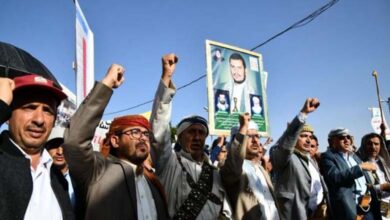Israel Plans to Annex the West Bank Amid Growing US Support

The Israeli government is working to create new facts on the ground in the West Bank, turning the issue of legal annexation into a matter of time rather than a theoretical debate. This includes political and legislative aspects, as well as the development of new infrastructure.
Amid escalating aggression on the Gaza Strip, the Israeli government is quietly accelerating strategic moves to impose a new reality in the West Bank, effectively steering it toward full Israeli sovereignty. This strategy takes advantage of regional and international preoccupation, and the strong backing from U.S. President Donald Trump’s administration, with the ultimate aim of ending the Palestinian cause—especially with discussions around the forced displacement of Gaza’s besieged population.
-
The Forgotten Front: Israel’s Parallel War on Palestinian Citizens Inside Israel
-
Gaza News Now: Ongoing Israeli Incursion and Bombardments Accompanied by Calls for a Global Strike
The Hebrew newspaper Haaretz reported statements by Yoni Danino, a senior official in the Israeli Ministry of Defense’s “Settlement Administration,” who confirmed that imposing Israeli sovereignty on the West Bank still requires legislation by the Knesset. However, he emphasized that what is happening on the ground today constitutes steps that “bring the West Bank increasingly closer to the reality of annexation.”
Observers believe the war on Gaza has provided the Israeli government with a suitable political and security cover to intensify its activities in the West Bank away from public attention. With the international community focused on Gaza’s humanitarian crisis, Tel Aviv has found a rare opportunity to quietly expand its control over the West Bank.
-
Gaza Invasion Expands: Israeli Operation in Shuja’iyya
-
Israel Expands the War in Gaza and Plans for Population Displacement
The lack of a firm international stance on settlement expansion, combined with a strong alliance among far-right Israeli parties, has accelerated the passage of legislation in the Knesset aimed at fundamentally changing the character of the West Bank—either through the imposition of legal sovereignty or through manipulation of international law.
Danino explained that his administration is working to create “new realities” in the West Bank, making legal annexation only a matter of time. In his remarks to Haaretz, he said: “The more the Settlement Administration creates facts on the ground, the more realistic the possibility of imposing sovereignty becomes.”
-
Israel Warns Rafah Residents… A Worsening Tragedy and a Potentially Expanding Maneuver
-
Between Defense and Offense: The Transformation of Israel’s Security Doctrine After October 7
He noted that the ongoing preparations extend beyond political and legislative dimensions to include new infrastructure projects, road networks designated for settlers, and expanded geographical connections between settlements and between the West Bank and Israeli areas inside the Green Line.
In a notable revelation, Danino stated that about 20% of Israel’s electricity production comes from renewable energy projects established in the West Bank. He argued that this new economic reality strengthens the case for annexation and renders separation from the West Bank illogical from the Israeli perspective.
-
Latest News from Gaza: Israel Expands Operations in the North Mass Exodus towards the South
-
Back to square one… Why did Israel resume its war on Gaza?
Among the indicators Danino cited as evidence of progress toward annexation was the announcement of 28 new settlements during the current government’s term. He described this move as a “qualitative shift,” stressing that these are not unauthorized outposts, but rather well-planned projects carried out by the state with “excellence.”
He confirmed that the previous period saw a prolonged halt in new settlement construction, but the current government, led by Benjamin Netanyahu and heavily influenced by Finance Minister Bezalel Smotrich, has taken a radically different approach aimed at cementing Jewish presence in the West Bank as an irreversible fact.
-
“For the ‘Resettlement’ of Gaza’s Population… Three African Destinations on the Radar of the US and Israel”
-
Hamas Responds to New Proposal and Agrees to Release an Israeli-American Hostage
Smotrich himself has dubbed 2025 “The Year of Sovereignty in Judea and Samaria,” clearly indicating his government’s intent to proceed with the annexation plan, blatantly ignoring the Palestinian presence and the two-state solution supported by most of the international community.
According to Haaretz, the Knesset’s recent winter session witnessed a flood of legislation seeking to entrench the occupation as a permanent reality—completely disregarding Palestinian rights and showing no regard for UN Security Council resolutions or the Oslo Accords.
Legal analysts fear that these laws, introduced under Israel’s internal legal framework, may establish full legal segregation between settlers and Palestinians in the West Bank—resembling an apartheid system—despite Israel’s continuous efforts to deny such accusations.
-
Israel Faces Criticism amid Warnings of Famine and Chaos in Gaza
-
From Gaza to the West Bank… Israel Draws Up “The Day after” Plans
In light of these developments, the region seems poised for major shifts in the Israeli–Palestinian conflict. Israel is actively working to end the era of “temporary occupation” and replace it with a reality of “full sovereignty”—without agreement, without concessions, and amid talk of displacing Gaza’s residents to liquidate the Palestinian cause.
While Gaza sinks into an unprecedented humanitarian catastrophe, the West Bank appears on the verge of losing what remains of the possibility for a viable Palestinian state—amid a disturbing international silence and Arab distraction during one of the gravest phases of dismantling the Palestinian cause.
-
First Tanks in the West Bank in Decades… Israel Evacuates 40,000 Palestinians ‘Without Return’
-
After fishing… “Tunnel Messages” Precede the Release of an Israeli Hostage in Gaza
-
Revealing the Fate of the Oldest Israeli Hostage Held by Hamas












